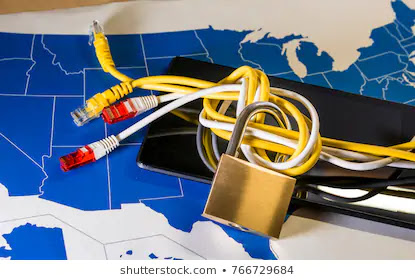INTERNET INTERMEDIARIES LIABLE TO ASSIST GOVT ?- SC
BACKGROUND
Article 21 of the Indian constitution provides protection of life and liberty of citizens as well as a non-citizen. The right to privacy is also among the several rights included in this article.
The right to privacy is not absolute. Section 69 of the
information technology act of 2000 grants the central government, the power to
impose reasonable restriction on this and intercept, decrypt or monitor
internet traffic or electronic data whenever there is a threat to national
security, national integrity, security of state and friendly relation to other
countries or in interest of public order
and decency.
In 2008, a bill was passed making a major
amendment in this section. The amendment gave the authorities the power to
‘interception or monitoring or decryption of any information’. It also included
provision-addressing issues like child porn, cyber terrorism, and voyeurism. The bill was passed in 2008 but was
signed by the president on 5th February 2009.
CURRENT ISSUES
 On Tuesday, 22nd October, the
supreme court decided to examine the plea to regulate social media and platforms
spreading fake news, rumor and other objectionable matters like pornography.
Supreme Court ordered the high court of Bombay, Madras,
and Madhya Pradesh to transfer all the pending cases concerning this
matter to itself. A bench of Justice Deepak Gupta and Aniruddha Bose listed the
matter of the hearing. The center filed an affidavit stating that within three
months they will formulate new rules, regulations, and
guidelines to check the misuse of these social media platforms for criminal or
anti-national activity.
On Tuesday, 22nd October, the
supreme court decided to examine the plea to regulate social media and platforms
spreading fake news, rumor and other objectionable matters like pornography.
Supreme Court ordered the high court of Bombay, Madras,
and Madhya Pradesh to transfer all the pending cases concerning this
matter to itself. A bench of Justice Deepak Gupta and Aniruddha Bose listed the
matter of the hearing. The center filed an affidavit stating that within three
months they will formulate new rules, regulations, and
guidelines to check the misuse of these social media platforms for criminal or
anti-national activity.
Attorney general K.K. Venugopal appearing for the Tamil Nadu government told the bench that there is specific rule or law under the IT Act, which makes the Internet Intermediaries Liable to assist the Govt in the matter of intercepting, monitoring or decrypting of information. He supported his argument by stating the section 69 of the IT act of 2000. To this, the bench, stating the subsection (3) of the same provision, said that the rule prima facie do not say that Internet Intermediaries are Liable to decrypt the information or message, they shall only be liable to “extend all facilities and technical assistance” to the Govt agencies. Justice Gupta told that even the US sends these messages to outside agencies to decrypt.
“The door is locked. You are daring them to
open. They are saying to open it yourself. Whether they are obliged to give the
key is the question.” asked justice Bose.
Senior advocate Mukul Rohatgi, appearing for WhatsApp
and facebook expressed the inability of the companies to decrypt the messages
as they don’t have the “key” for it. Moreover, senior advocate Shyam Divan,
appearing from Internet Freedom Foundation, insisted the bench not to make any
judgment on such issues as it might be a “ploy” to infringe the right to privacy
of the citizens. To this, the Solicitor General Tushar Mehta objected the use
of the term “ploy”. He added that there is no “ploy” as the government does not
want to invade the privacy of the citizen but the intermediaries are obliged to
provide the information and they cannot back out from revealing the same when
the issue is of public interest and national security.
CONCLUSION
It may be observed that the Madras High Court has expanded the scope of the case for proper cooperation between the intermediaries and agencies to prevent cyber crimes.
The Ministry of Electronics and Information Technology complying with the SC’s order told the court that the government felt that the rules need to be revised for proper and effective regulation of intermediaries keeping in view the growing cyber crimes and threats to the national security.

Comments
Post a Comment